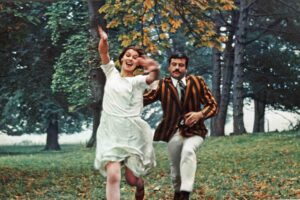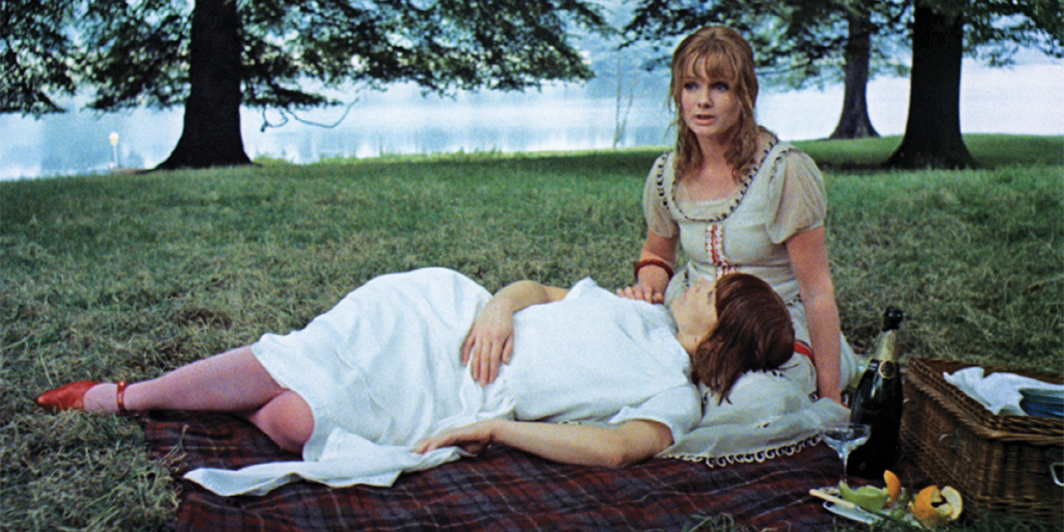As in Lawrence’s Women in Love, Russell’s water party, a euphemism for a picnic, begins happily in the bright light of the early afternoon but ends dismally in the evening, partially illuminated by gaudy party lights.
More like a country fair than an informal picnic, the water party is a busy affair demonstrating the Crich family’s generosity. *To avoid the crowd, Gudrun, and Ursula Brangwyn, two very self-possessed sisters, row to a location opposite the crowd, where they happily set a blanket on the grass.
Russell is skimpy, showing a tea basket beside which is champagne and orange peel. But this is just for show. Lawrence writes they had hot and aromatic tea, little cucumber sandwiches, caviar, and tiny cakes.
The spell snaps at the peak of their happiness when their prospective lovers arrive. More affable, Ursula is mostly (not entirely) pleased to see Rupert Birkin. They are in love but troubled. Gudrun is diffident and cool to Gerald Crich, especially when he suggests that her dancing frightens his cattle. It’s unclear if he’s joking, but his ardor is barely concealed as they spar. When he reaches for her, Ursula eludes his embrace. It’s a game for her but not for Gerald ought to know better.
At dusk, the picnic upended the party when. Gerald’s sister and her husband have drowned in the inky water. Gerald’s attempts at finding them are unavailing. Deeply saddened, Gudrun wants to comfort Gerald; Ursula does not. This deadly ending foreshadows Gerald’s doom. Spurned by Ursula, he commits suicide.

Gerald chases Ursula
* “The Water Party” is hosted by the Crich family, the town’s local coal mine owners, and the chief employer. Theirs is a substantial estate with a large lake to support a small steamer.
The cast: Glenda Jackson as Ursula Brangwyn and Jenny Linden Gudrun Brangwyn; Oliver Reed as Gerald Crich: Alan Bates as Rupert Birkin
See D.H. Lawrence. Women in Love. London: Martin Secker, 1920; Ken Russell.Women in Love (1969). The screenplay by Larry Kramer is based on Lawrence’s novel (1920), Joyce Carol Oates. “Lawrence’s Götterdämmerung: The Apocalyptic Vision of Women in Love.” Critical Inquiry, Spring (1978).

